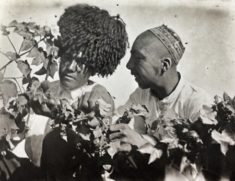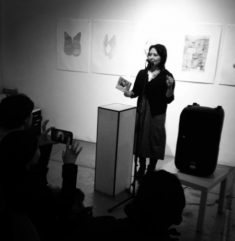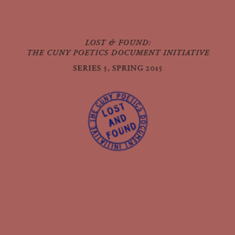Editor: Zohra Saed
60 pages, softcover, saddle-stitch binding
In 1932, along with a group of African American activists and writers including novelist Dorothy West, Langston Hughes journeyed to the Soviet Union. Veering off from the “official” trip, Hughes met Arthur Koestler before venturing on to an extended journey through the newly formed republics of Central Asia. While Hughes’ readers may be familiar with his A Negro Looks at Soviet Central Asia, this chapbook makes available previously unpublished material drawn from Hughes’ notebooks, photographs, and collaborative translation projects with Uzbek poets. Just as his own work is being translated into Uzbek, Hughes—ever the participant—collaborates with his peer poets in the region to produce texts published in this collection for the first time. Finally, Hughes’ acuity of vision extends to his photographs appearing here, scenes of workers in the cotton fields of Central Asia that stand in stark contrast to official depictions of the time. Complementing The Selected Letters of Langston Hughes (2015) and a reprint of the 1926 edition of The Weary Blues, Langston Hughes: Poems, Photos & Notebooks from Turkestan reveals yet another aspect of the ever-expanding universe of one of the greatest American writers.
Author Biography:
LANGSTON HUGHES (1902-1967) was born in Joplin, Missouri, and grew up in Kansas, Illinois, and Ohio. In the 1920s, he gained a reputation as a poet, becoming a leading figure in what he called in his first autobiography "the black renaissance." A prolific poet, prose-writer, and playwright, he served as an example to several generations of African American writers, always lending his support to younger people and new movements in the arts. From 1932-1933, Hughes traveled in the Soviet Union, spending much of his time in Central Asia and returning to the US with several notebooks, hundreds of photographs, and clippings of poems from the Central Asian writers he met there. This trip, along with his work in Spain on behalf of the Republic (featured in Lost & Found Series III), formed major episodes in Hughes' public political engagement. While popular and known throughout the world, Hughes faced backlash at home. Despite his wishes to see work from this period gathered, these writings and photographs from his trip to the Soviet Union were never published in book form. A major 20th century cultural figure, he passed away in Harlem on May 22, 1967.
Selected Archives:
- Beinecke Rare Book & Manuscript Library, Yale University, New Haven, CT
- Schomburg Center for Research in Black Culture, The New York Public Library, New York, NY


